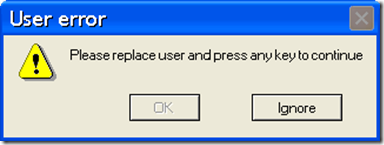I began this week on the search for a Community of Practice. For a project in one of my EdTech graduate courses, we must "join or at least visit a community of practice (CoP). During this visit, you will act as an ethnographer. You will record photos or video and notes, and edit them into a (<5 min) multimedia presentation that illustrates the key components of a CoP." The trick here is this: "The CoP you choose should be:
Something you don’t already know, belong to, or participate in.
A real, in person CoP. No online CoPs for this.
A legitimate CoP according to the standards in Wenger
Approved by me before you do your research."
That third one down, "according to standards in Wenger," that’s the hard one. I searched my mind first, what communities of practice do I know? Theatre! I know many people involved in theatre, and we meet at least once a month a talk shop. The group is very informal, go out for lunch when someone sends a text, and gab about the local theatre scene, directors, talk to each other about the shows we were in and how they could have been improved etc etc. Literally a perfect example of a CoP! Then it hit me…"Something you don’t already know, belong to, or participate in." Well, that puts a damper on things. I began thinking about any other CoP's I could come up with, and everyone I thought of was not truly a CoP according to Wengers standards.
What hit me was this: CoP's in Wengers standards are hard to come by. Most of these exist on the internet know in forums and sites such as private wiki's. If and when there is a physical meeting of individuals, there tends to be some sort of membership involved.
The idea of a CoP still exists, only perhaps, on smaller scales. These could be lunch groups that have formed via theatre relationships, or students who meet and talk about homework every week. For larger groups, they have moved to the internet to share information and advice.
During these thoughts, I had a revelation. The maker culture! This culture of DIY doers, hackers, tinkerers, tend to meet up and work on projects together. They are usually individuals who belong to similar practices, and share a domain. A perfect example of a CoP, and I found one! Fresno Ideaworks. More info to come of course, as soon as they email me back and let me know they will let me film them.
Oh Boy, lets hope this works.




